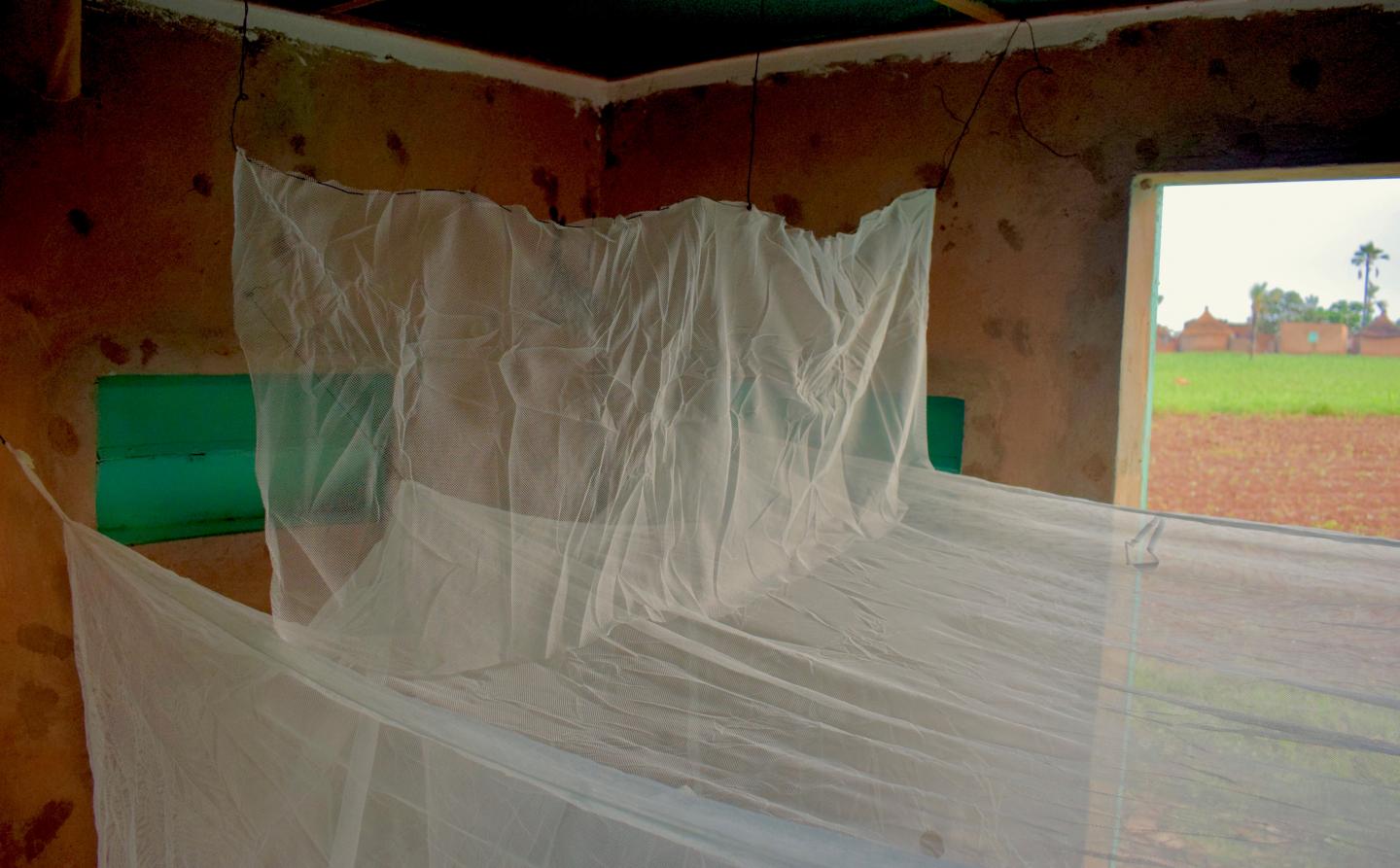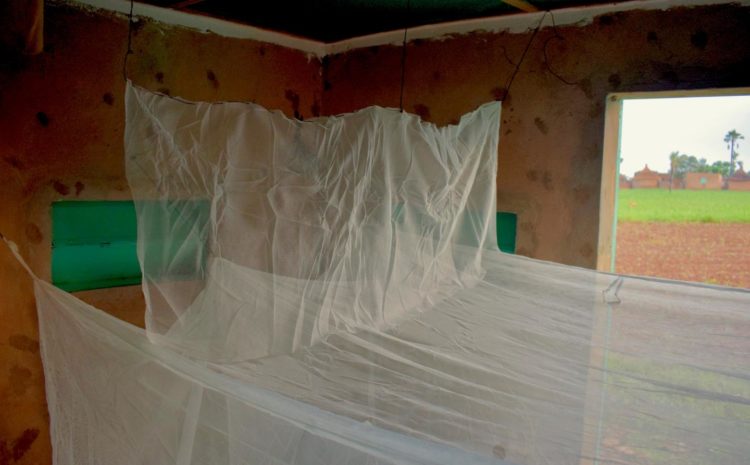The Barrier Bednet — a unique bednet design that improves safety, cost effectiveness and lethality to insecticide resistant mosquitoes

Credit: Lissenden/LSTM
Researchers from LSTM have designed a new bednet that can kill mosquitoes more efficiently than existing nets, in a way that increases the choice of insecticide used, while minimising risk to the person inside the bednet.
The team, led by LSTM’s Professor Philip McCall, designed what they call the Barrier Bednet as a solution to the increasing problem of resistance in African mosquito populations to pyrethroids, the main insecticide class currently used on bednets. Using video tracking systems developed with engineers from the University of Warwick, the team had already mapped the behaviour of malaria mosquitoes around bednets, which allowed them to explore how and where mosquitoes could be targeted. From this came the barrier net design, simply an extra panel of netting positioned above a standard bednet’s roof, where mosquitoes collide with it as they fly back and forth above the net.
Results from initial studies, published today in the journal Nature Microbiology, show that Barrier Bednets with an appropriate treatment were highly effective against wild insecticide resistant Anopheles gambiae vectors in Burkina Faso. Remarkably, this was the case even when the bednet was untreated and only the barrier carried insecticide. Despite the apparent simplicity, the results are quite significant. Professor McCall explained: “Ensuring that long-lasting insecticidal bednets (LLINs) remain effective despite insecticide resistance is a global health priority and a research goal for those looking for effective tools to prevent the spread of malaria. Putting insecticide on the panel above the roof of the net means that is beyond the reach of children, doesn’t come into contact with those sleeping inside the net and is rarely touched during routine daily activity. This paves the way to use insecticides previously unavailable for bednets because of possible health risks from direct contact. Plus, if we only use the effective insecticide on the barrier panel, it means that manufacturing nets would cost a lot less, as would the over-the-counter price for the people that need them. It also means we could consider additional insecticides that might have been ruled out previously as too expensive.”
Mathematical modelling of malaria epidemiology by the Imperial College colleagues looked at the likely impacts on malaria in Burkina Faso if existing bednets were replaced by barrier bednets. Results indicated that barrier bednets should perform at least as well as the next-generation bednets currently being recommended by WHO for use where pyrethroid resistance occurs.
The team hopes that this simple design can safeguard the central role of bednets in malaria control for many years. “Insecticide-treated bednet are by far the most important method for preventing malaria in Africa and we cannot afford to lose them” continued Professor McCall. “Recent trial results have shown that insecticide combinations are effective against pyrethroid-resistant mosquitoes but toxicity restrictions on risk to occupants, especially children, and the higher cost of these nets continue to reduce options. We believe that barrier bednets can match the efficacy of WHO’s currently recommended nets and with minor modification, possibly become even more effective. Importantly, because we can use current insecticides and production technology, functional Barrier Bednets could be ready for household deployment in at-risk communities in the very near future.”
###
Media Contact
Clare Bebb
[email protected]
44-015-170-53135
Related Journal Article
http://dx.





